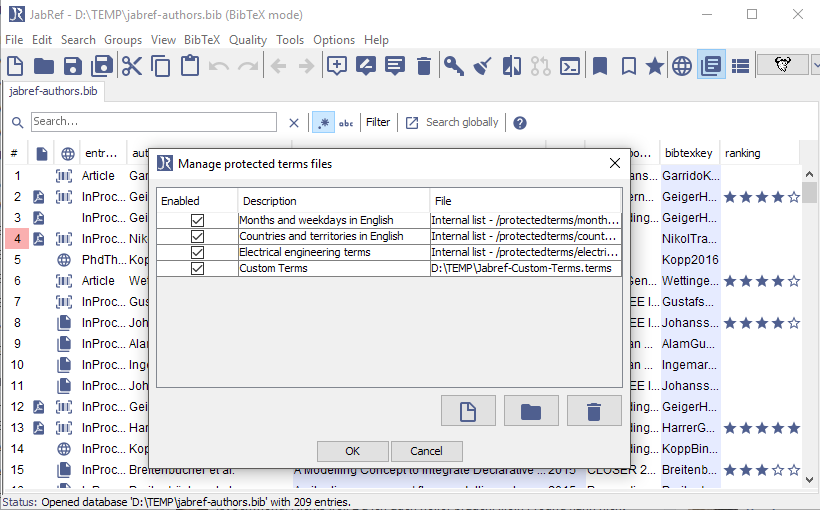Release of JabRef 3.6
We just released a new version of JabRef!
The new version 3.6 can be downloaded as of now from FossHub or at GitHub.
Version 3.6 contains 45 bug fixes and more than 30 changes and improvements.
The most notable new aspects are:
- The support for using a SQL database for storage in teams has been massively improved: JabRef now updates automatically if something has been changed, in case of conflicts a merge dialog is shown, and various other improvements have been made.
- A detailed description of how to use this feature can be found here: https://help.jabref.org/en/SQLDatabase
- Note: Due to this changes SQL databases created with an older version of JabRef must be migrated. You can find a migration guide here at help.jabref.org.
- As announced in a previous blog entry the hotkey system has been changed to more consistent keys
- We added support to maintain user comments (
@Comment) in opened/importedbib-Files - The
Protect Terms-Formatter which puts{ }braces around terms can now be customized. Thus, you can maintain additional lists of terms for your domain which should be protected.- You can access the configuration via
Options->Manage Protected Terms(see screenshot below). - To add additional terms create a simple text file with the file ending
.terms, put each term to protect in a new line and import this text file in the mentioned options dialog.
- You can access the configuration via
Regarding the bug fixes the most important fix is that fetching entries from GoogleScholar is now working again (it has been broken as Google changed the structure of the site). Moreover, there are various other fixes in the OpenOffice/LibreOffice tooling, in various web fetchers, importers and exporters, and in the unicode/LaTeX formatters.
An overview of all new features and fixes can be found as usual in the Changelog at GitHub.
A note to all Mac OS X users: There might be problems if you don’t have Java 8 installed on your machine. Moreover, you might be required to use Cmd-MouseClick to open the installer to be able to ignore a security warning. For more information checkout the FAQs.
For questions about the functioning or suggestions for improvements please use the discussion forum. In case you have trouble, report bugs on GitHub.
